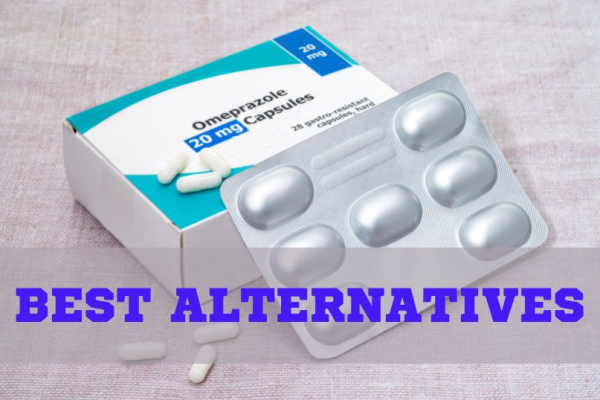In recent weeks, a concerning shortage of the medication known as ezetimibe has been causing distress among individuals who rely on it to manage their cholesterol levels. Ezetimibe shortage has prompted many to question the importance of this drug, how it differs from statins, and whether it might be a better choice for their cholesterol management. In this post, we will delve into the reasons behind the ezetimibe shortage, discuss its primary use, compare it to statins, and explore alternatives for those affected.
What is Ezetimibe and Its Primary Use?
Ezetimibe is a medication prescribed to lower cholesterol levels in the bloodstream. It is primarily used for individuals with high cholesterol, a condition that can increase the risk of heart disease and stroke. High cholesterol is often a result of the body’s overproduction or inefficient removal of cholesterol, leading to the buildup of fatty deposits in the arteries. Ezetimibe works by inhibiting the absorption of cholesterol from the diet within the small intestine, thereby reducing the overall cholesterol levels in the body.
Management of high cholesterol: recommendations
The National Institute for Health and Care Excellence (NICE) in the United Kingdom provided recommendations for the treatment of cholesterol primarily through its clinical guidelines. NICE generally recommended the following approaches for cholesterol management:
Diet and Lifestyle Modifications: NICE emphasizes the importance of lifestyle changes, including adopting a heart-healthy diet, increasing physical activity, losing weight if necessary, and reducing alcohol consumption to manage cholesterol levels.
Statins: NICE recommends statin therapy as the first-line treatment for individuals with high cholesterol levels and a significant risk of cardiovascular disease. The specific statin, dose, and target cholesterol levels may vary based on individual risk factors and clinical assessment.
Other Medications: In cases where statins are not suitable or tolerated, NICE may recommend alternative cholesterol-lowering medications, such as ezetimibe or bile acid sequestrants, depending on the patient’s profile and needs.
Monitoring and Risk Assessment: NICE guidelines often stress the importance of regular monitoring of cholesterol levels and assessing cardiovascular risk using tools like the QRISK calculator. This helps healthcare providers adjust treatment plans as needed.
Combination Therapy: In some cases, NICE guidelines suggest combining different cholesterol-lowering medications (e.g., statins and ezetimibe) to achieve target cholesterol levels when necessary.
When the highest tolerated dose of a statin by itself does not sufficiently manage LDL-cholesterol levels or when contemplating a change to a different statin, it is advisable to consider a combination of a statin and ezetimibe (NICE, 2023).
Individualized Approach: NICE guidelines typically emphasize the importance of tailoring treatment plans to the individual’s specific risk factors and needs.
Ezetimibe shortage
It comes as no surprise that another drug is short in supply. 2013 has been a difficult year with several shortages in the market, including a significant shortage of atorvastatin, which happened this year. The ezetimibe shortage has not lasted a long time yet and started at the end of November and December. Some intermediate supply happened during this period. As with many other drugs, usually there is no definite date or official information (usually provided by NHS) on when supply will be restored. Pharmacies usually try to reorder drugs several times a day, however when backlog of owed drugs happens, it usually takes longer to restore the supply.
Currently (mid-December), three main pharmaceutical suppliers in the UK have no stock of ezetimibe. One supplier (B&S Group) has had a supply of ezetimibe for the last couple of weeks (pricing issue, see below), however not all pharmacies may not use them as their wholesalers, certainly not Boots or Tesco pharmacies.
Ezetimibe shortage: pricing issues
When the supply of drugs on the market is interrupted, most wholesalers (and manufacturers) increase the prices of drugs above the price which pharmacies are being paid by the Government. The same situation is observed during the ezetimibe shortage. The current price increased somewhere 15x of the ‘normal’ price. The Government has a mechanism by which the reimbursement price is changed, however, in this case, a current reimbursement price still leaves pharmacies at the loss of almost £10 per box supplied to the patient. Consequently, many pharmacies will not supply ezetimibe, despite its availability.
Ezetimibe shortage: What to do?
Patients who are faced with out of stock problems have a couple of options to choose from. Patients can ring around and check if ezetimibe is available in other than their usual pharmacy. If stock is found, patients may take their prescription token to another pharmacy, provided no other drugs were supplied on the same prescription. If other drugs were prescribed and collected by the patient, a new prescription will need to be requested from the surgery. Another option is to ask the GP to prescribe an alternative medication. See the later part of this post for details.
A patient who has a sufficient stock of ezetimibe should wait until a few tablets are left or even wait until they are due to reorder their medicines and allow others to get the stock and minimise the pressure on the demand for the drug.
Many patients who currently take ezetimibe ask about alternative medicines, including statins.
Ezetimibe vs. Statins: Understanding the Difference
Ezetimibe and statins are both used to manage cholesterol levels, but they work in fundamentally different ways. Statins, such as atorvastatin and simvastatin, act by blocking an enzyme in the liver that is responsible for producing cholesterol. In contrast, ezetimibe reduces cholesterol levels by preventing the absorption of dietary cholesterol in the intestines. This key distinction means that ezetimibe and statins can be used together to achieve a more comprehensive reduction in cholesterol for those who require it.
Is Ezetimibe Better than Statins?
Whether ezetimibe is better than statins depends on individual circumstances. Statins are the go-to choice for many patients due to their well-established effectiveness in reducing cholesterol levels and preventing cardiovascular events. However, some individuals may not tolerate statins well due to side effects like muscle pain or liver abnormalities. In such cases, ezetimibe can be a valuable alternative or adjunct therapy.
Additionally, for certain patients at very high risk of heart disease, a combination of ezetimibe and a statin may be more effective in achieving lower cholesterol levels than using a statin alone. Deciding which medication is best suited to an individual’s needs should be a collaborative effort between the patient and their healthcare provider.
Exploring Ezetimibe Alternatives
Given the current shortage of ezetimibe, individuals facing difficulties in obtaining this medication should consult their healthcare providers to discuss alternative options. Depending on the individual’s cholesterol profile and health status, alternatives may include:
1. Ezetimibe alternative: statins
Statins remain the most common and effective cholesterol-lowering medications.
The most commonly prescribed statin in the UK is atorvastatin, however, other statins are available on the market. Learn more about atorvastatin and atorvastatin alternative drugs.
2. Ezetimibe/Simvastatin combination drug
Patients who take ezetimibe and simvastatin already may try to ask their GP to prescribe a combination product containing both ezetimibe and simvastatin, which is available during ezetimibe shortage. The combination product is much more expensive than the total cost of individual drugs, therefore not all GPs may agree to this alternative option. A generic form of ezetimibe/simvastatin is available in the following strengths:
- Ezetimibe 10mg / Simvastatin 20mg
- Ezetimibe 10mg / Simvastatin 40mg
- Ezetimibe 10mg / Simvastatin 80mg
The above generic drugs are also available in the same combination and strengths under a branded name called Inegy.
3. Bile Acid Sequestrants as Ezetimibe Alternative
Medications like cholestyramine can be used to lower cholesterol levels by binding to bile acids in the intestines.
4. Fibrates
Fibrates, such as fenofibrate, are used to lower triglyceride levels and can also have a moderate effect on reducing LDL (bad) cholesterol.
5. Diet and Lifestyle Changes
In some cases, dietary modifications, regular exercise, and weight management can significantly impact cholesterol levels.
In conclusion, the current ezetimibe shortage is a concerning issue for those who rely on it for cholesterol management. It is essential to communicate with pharmacies regarding ezetimibe availability or to explore alternative medications and treatment plans with a GP.
References:
NICE (2023). Dyslipidaemias. Available at: https://bnf.nice.org.uk/treatment-summaries/dyslipidaemias/ Accessed on 13/12/2023






